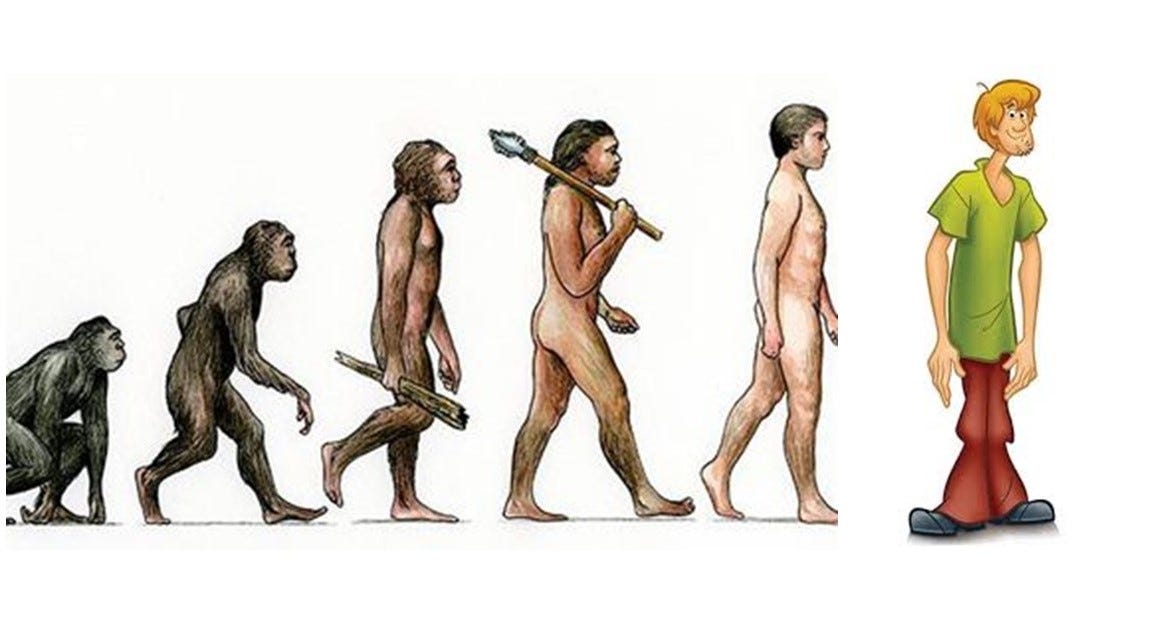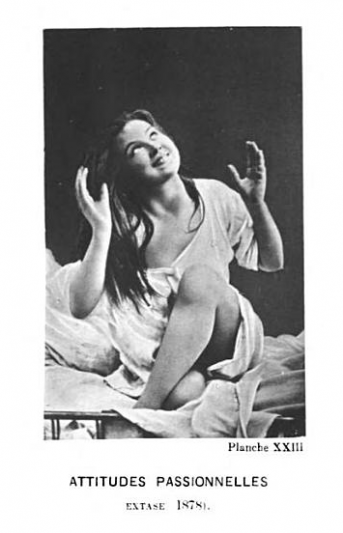【海外記事】あなたは「アシッドテスト」に合格できるか? - サイケデリックと精神的優生学について:前編

あなたは「アシッドテスト」に合格できるか? - サイケデリックと精神的優生学について:前編
ジュールズ・エヴァンス
2020年8月30日
I want to discuss the difficult question: to what extent can one cleanly distinguish a ‘spiritual emergency’ from other psychotic experiences.
「スピリチュアル・エマージェンシー(精神的・霊的緊急状態)」と他の精神病体験とをどこまで明確に区別できるかという難しい問題について議論したいと思います。
‘Spiritual emergency’※1 is a term introduced by two transpersonal psychologists — Stanislav and Christina Grof — in 1989, to describe a disturbing spiritual experience which has some aspects of psychosis, but which should not be treated as ordinary mental illness. Instead, insist the Grofs, a ‘spiritual emergency’, if properly handled, can ‘have tremendous evolutionary and healing potential’.
「スピリチュアル・エマージェンシー」とは、1989年にトランスパーソナル心理学者のスタニスラフ・グロフ ※2 とクリスティーナ・グロフの二人が提唱した言葉で、精神病のような側面を持つ不穏な霊的体験を表すものですが、通常の精神疾患として扱うべきではありません。グロフ夫妻は、「スピリチュアル・エマージェンシー」は、適切に対処されれば、「非常に大きな進化と癒しの可能性を秘めている」と主張しています。
As Tehseen Noorani has noted,※3 there are issues with this attempt to draw a clean line between ‘spiritual emergency’ and other forms of psychosis.
Tehseen Noorani ※4 氏が指摘するように、「スピリチュアル・エマージェンシー」と他の形態の精神病との間に明確な線引きをしようとする試みには問題があります。
I want to place this manoeuvre within the history of New Age spirituality and transpersonal psychology, and its troubled relationship with evolutionary theory and eugenics.
私はこの試みを、ニューエイジ・スピリチュアリティやトランスパーソナル心理学 ※5 の歴史、そして進化論 ※6 や優生学 ※7 との「問題に満ちた関係の中に」位置づけたいと思います。
エクスタシーの病理学的解明
In The Art of Losing Control, I tried to find out how westerners find ‘ecstatic experiences’ today, and to what extent such experiences could be good for one — good in a pragmatist, eudaimonic sense of leading to greater flourishing.
『The Art of Losing Control』※8 では、西洋人が「恍惚とした体験」をどのように捉えているのか?また、そのような体験がどの程度まで人にとって良いものなのか?つまり、より大きな繁栄につながるというプラグマティスト的 ※9 、ユーダイモニック的 ※10 な意味での良いものなのか?を探ろうとしました。
I drew on the history of ecstasy formulated by writers like Aldous Huxley ※11, Etzel Cardenia ※12, Michael Heyd ※13 and Bernd Bosel ※14.
私は、オルダス・ハクスリー ※15 、エッツェル・カルデーニャ ※16 、マイケル・ハイド、ベルント・ボセルなどの作家が策定したエクスタシーの歴史を参考にしました。
As these historians explored, materialist philosophers and scientists have sought, since at least the 17th century, to marginalize and pathologize religious ecstasy, labelling it ‘enthusiasm’, ‘hysteria’, or various forms of psychosis, and describing it as symptomatic of either an over-active imagination, low intelligence, or brain disease.
これらの歴史家が探求したように、唯物論哲学者や科学者は、少なくとも17世紀以降、宗教的エクスタシーを疎外し、病理学的に捉えようとしてきました。それは、宗教的エクスタシーを「熱狂」、「ヒステリー」、または「様々な形態の精神病」として名づけ、「過剰な想像力」、「低知能」、または「脳の病気の症状である」と記述しました。
「恍惚感はヒステリーという脳の病気の症状である」と主張し、自分の主張を「証明」するために、患者に神秘的なポーズをとらせてこのような写真を撮った。
For materialist thinkers like Jean-Martin Charcot and Henry Maudsley, ecstatic or mystical experiences were proof that you’re sick, insane, evolutionarily degenerate, unfit for civilized society, and should possibly be locked up.
ジャン=マルタン・シャルコー ※17 やヘンリー・モーズリー ※18 のような唯物論者にとって、恍惚感や神秘的な体験は、「あなたが病気であり、精神異常であり、進化的に退化していて、文明社会に適しておらず、おそらく監禁されるべきものである」という証拠でした。
On the other hand, various counter-cultural movements — ecstatic Christianity, Romanticism, the New Age — defensively declared that ecstatic experiences could be the greatest thing that ever happened to you. They could be proof that you were divinely-inspired, superhuman, elect.
その一方で、様々なカウンター・カルチャー・ムーブメント(恍惚としたキリスト教、ロマン主義、ニューエイジなどの様々な反文化運動が)は、「恍惚とした経験は自分に起こった最も素晴らしいことかもしれない」と防御的に宣言しました。「恍惚とした経験は、自分が神に触発された超人的な存在であり、選民であることを証明するものである」としたのです。
There’s still this unfortunate dichotomy in western culture: either ecstatic experiences are proof you’re degenerate, or they’re proof you’re divinely elect.
西洋文化には、恍惚とした体験が「堕落した人間の証拠であるか?それとも神に選ばれた人間の証拠であるか?」という残念な二分法が残っています。
スピリチュアル・ダーウィニズム
I want to focus particularly on the attitude to ecstatic experiences found in the New Age occulture in the 1890s, because that’s where the roots of transpersonal psychology lie.
私は特に、1890年代のニューエイジ・オカルチュアに見られる恍惚体験に対する態度に注目したいと思います。なぜなら、そこにはトランスパーソナル心理学 ※4 のルーツがあるからです。
What one sees in the pioneers of New Age spirituality — in everyone from Madame Blavatsky to Vivekananda to Frederic Myers to Sri Aurobindo to Aldous Huxley — is a reaction to the triumph of Darwin’s materialist theory of evolution, and an attempt to incorporate aspects of evolutionary theory into a new spirituality.
マダム・ブラヴァツキー ※19 、ヴィヴェーカーナンダ ※20 、フレデリック・マイヤーズ ※21 、スリ・オーロビンド ※22 、オルダス・ハクスリー ※15 など、「ニューエイジ・スピリチュアリティの先駆者たち」に見られるのは、「ダーウィンの唯物論的進化論の勝利への反発」であり、「進化論の側面を新しいスピリチュアリティに取り入れようとする試み」です。
This leads to a sort of spiritual Darwinism, to the idea that mankind is spiritually evolving to a higher level of consciousness, and mutating into a glorious new species possessed with hitherto latent potentialities.
これは、「人類が精神的に高い意識レベルへと進化し、これまでにない潜在的な能力を持った輝かしい新種へと変異している」という、精神的ダーウィニズムに通じるものがあります。
Or at least, some humans are.
少なくとも、一部の人間にはそう考える人もいます。
What one also often finds, in this frame of thinking, is the idea that a select few are having special experiences (cosmic consciousness, peak experiences, samadhi, merging with the Supermind). This select few are the elite, the vanguard of evolution, the Nietzchean supermen, the first strains of a whole new species — homo novus.
また、このような考え方の中でよく見られるのが、一部の人が特別な体験(宇宙意識、ピーク体験、サマディ ※23 、スーパーマインドとの融合)をしているという考え方です。この選ばれた少数の人々は、エリートであり、進化の前衛であり、ニーチェ的な「超人」であり、全く新しい種である「ホモ・ノウス(ノウス・ホモ)」 ※24 の最初の系統である。
This categorization of some well-to-do ecstatics as evolutionarily progressive is a defensive manoeuvre against medical authorities like Henry Maudsley who would deem you primitive and insane if you admit to a spiritual experience.
このように、一部の裕福な静寂主義者 ※25 を進化的に進歩したものとして分類するのは、霊的体験を「それは原始的であり精神異常である」とみなすヘンリー・モーズリー ※18 のような医学界の権威に対する防衛策である。
But it’s a class-bound defensive manoeuvre.
しかし、それは階級に縛られた守備範囲でしかない。
It says, in effect, ‘we couldn’t possibly be primitive or insane — we’re fine, upstanding, successful, respectable members of the upper-class elite. For people like us, ecstatic experiences are actually proof of our evolutionary advancement.’
つまり、「私たちが原始的で狂っているはずがない。私たちは順風満帆で、立派で、成功していて、尊敬できる上流階級のエリートだ。私たちのような人間にとって、恍惚とした体験は、実は私たちの進化の証なのです」ということです。
You see this class-based defence of ecstatic experiences in the papers of the Society for Psychical Research, the Edwardian organisation which in many ways laid the seeds for what would become transpersonal psychology.
エドワード時代に設立された心霊研究協会(Society for Psychical Research) ※25 の論文には、このような階級に基づく恍惚体験の擁護が見られます。同協会は、多くの点で後にトランスパーソナル心理学 ※4 となるものの種を蒔いた組織です。
It was co-founded in 1882 by Frederic Myers, who declared: ‘the kind of adversary present to my mind is a man like Dr Maudsley…I want…to save the men whose minds associate religion and the mad-house.’
心霊研究協会 ※26 は1882年にフレデリック・マイヤーズ ※21 が共同で設立しました。彼は次のように宣言した。「私の心の中にいる敵は、モードリー博士のような人物だ...私は...宗教と精神病院を結びつけている人たちを救いたいのです」と。
The SPR, in its attempts to prove the legitimacy of spiritual experiences like telepathy or visions of the dead, often highlighted how respectable their witnesses were (‘this ghost-sighting was witnessed by the Duchess of Bedford’ etc). And indeed, it was an extremely well-connected organisation, with not one but two former prime ministers among its members.
SPR(心霊研究協会) ※25 は、テレパシーや死者の幻影などの霊的体験の正当性を証明するために、その目撃者がいかに立派な人物であるかを強調することが多かった(「この幽霊の目撃者はベッドフォード公爵夫人 ※27 である」など)。実際、元首相が2人も所属するなど、非常に人脈の広い組織であった。
Later, in Doors of Perception, Aldous Huxley would also use his white, male, upper-middle-class privilege to oppose the labelling of drug-induced ecstasy as pathological or delinquent, and insist instead it was mystical and progressive.
後に、オルダス・ハクスリー ※15 は『知覚の扉』※28 の中で、彼が「白人男性であり、アッパーミドルクラスである」という特権を利用して、薬物による「エクスタシーを病的、非行的とすること」に反対し、代わりに「神秘的で進歩的である」と主張しています。
Or at least, it was for people like him.
少なくとも、彼のような人間にとってはそうだった。
(翻訳ここまで:後編へ続く)
medium.com より翻訳引用
※1
※2
※3
※4
※5
※6
※7
※8
※9
※10
ユーダイモニア(Eudaimonia, ギリシャ語: εὐδαιμονία [eu̯dai̯moníaː]), eudaemonia , eudemonia [juːdɪˈmoʊniə] )とは、ギリシャ語に由来する言葉であり、一般的には幸福や福祉と訳されるが、より本質的に「人間の繁栄・繁華」「祝福を受けた人々」といった訳も提案されている。
心理学における現代のユーダイモニアは、自己実現達成における初期の研究として、 エリク・H・エリクソン、 ゴードン・オールポート、 アブラハム・マズローなどによって行われた。
※11
※12
※13
※14
emotionsblog.history.qmul.ac.uk
※15
※16
エッツェル・カルデーニャ(1957年11月9日生まれ)は、スウェーデンのルンド大学のトーセン心理学教授であり「CERCAP(Centre for Research on Consciousness and Anomalous Psychology)」の所長を務めている。心理学的催眠学会、臨床・実験催眠学会の会長を務め、現在は『Journal of Parapsychology』の編集者である。開かれた科学的探求といくつかの超常現象の有効性を支持する意見を述べている。超心理学協会はカルデーニャに2013年チャールズ・ホノートン統合貢献賞を授与した。著書に『Altering Consciousness』、『Varieties of Anomalous Experience』などがある。
※17
※18
※19
※20
※21
※22
※23
※24
※25
※26
※27
※28
著者紹介
ジュールス・エバンス
「Philosophy for Life」などの著書がある。
「Centre for the History of the Emotions(感情史センター)」名誉研究員。
http://www.philosophyforlife.org/
↓良ければポチっと応援お願いします↓











